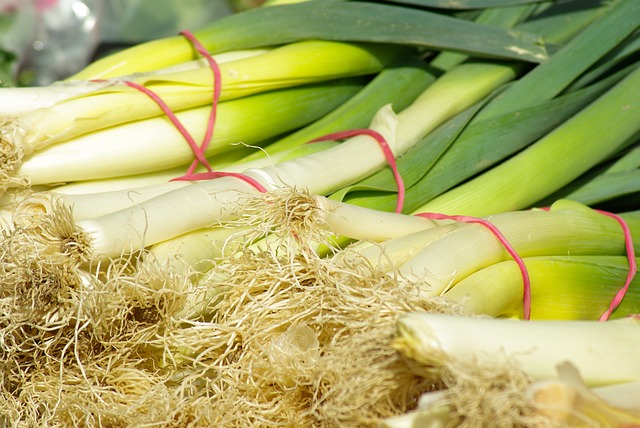
We’re always conducting tests on a wide variety of plants to demonstrate the overwhelmingly positive benefits of soil remineralization on plant health and crop yields.
This year, our test greenhouse in Madras, Oregon is filled with lots and lots of lovely leeks. What we’ve found is that plants that were planted in mineral-rich soil that had been amended with Cascade Minerals Remineralizing Soil Booster at a rate of about 200 lbs per cubic yard had much thicker stems and weighed more than plants that were given lower amounts.
We’re not surprised, as silicon-based minerals and nutrients such as those found in all-natural volcanic basalt have been demonstrated to improve plant structure and contribute to stronger and more vigorous plants. Healthy plants also provide our bodies with more nutrition, which is an added bonus when you start thinking about using all those leeks from your garden to make hearty bowls of leek-and-potato soup.
If you are thinking about adding leeks to your garden and to your dining table, here a few things to consider:
Leeks are sweeter and milder than their cousin, the onion. Unlike the onion, however, leeks don’t produce bulbs—you eat the long, white stem instead.
Leeks are frost tolerant and do well in cool weather. Plant them in well-drained soil that you amend with an all-natural, organically approved rock dust product like Cascade Minerals Remineralizing Soil Booster. This provides plants with essential nutrients and trace elements that are released slowly over time.
To get juicy, white stems for cooking, you need to keep them from the sun (i.e., the stems need to be “blanched”). You do this by burying plants deeply, up to the point where the first leaves separate from the stem. Avoid getting soil into the folds between the leaves.
After harvesting, wash leek stems carefully to remove any soil that has collected between the leaves.
If you replant the untrimmed bottom of your leeks (about 3/4-inch), they will produce offshoots for next year’s crop.
Leeks freeze well, which makes them perfect for soups and stews all year long. Enjoy!
